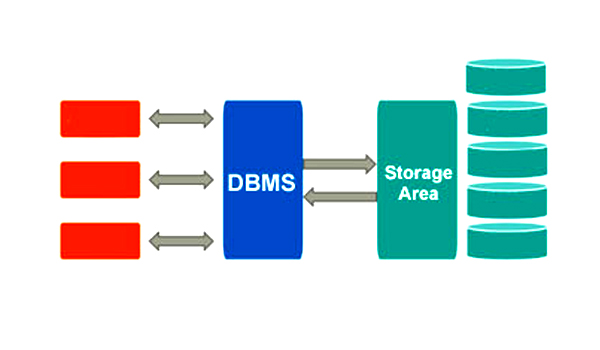Find Best Database Management Software for Your Business
We help you find the right Database Management Software for your business.

Browse Popular Database Management Software
Up-to-date listing of Database Management Software to assist you throughout your software selection and purchase journey.
Database Management Software:
Database Management Software is a software that is used to create and manage data in the databases. A a defined process can be provided by the software for data retrieval, management, updating, and creation of data by the users.
A collection of information that is organized in tabular forms and stored on a computer system is known as a database. This information can be updated or modified as required. It help in storing data securely, reducing data redundancy and maintaining the efficiency of data. Generally SQL queries are used to interact with a database by the software. A command is received from a database administrator (DBA) which could be about loading, retrieving, or modifying existing data in the system to prompt the system to perform the necessary action.
Types of database management software
- RDBMS: Uses SQL, organizes data into tables.
- NoSQL: Handles unstructured data, offers scalability.
- OODBMS: Stores data as objects, suited for complex data modeling.
- Hierarchical: Organizes data in a tree-like structure.
- Network: Represents data with network-like structures.
- Columnar: Stores data in columns, optimized for analytics.
- IMDBMS: Stores data in main memory for speed.
- Time-Series: Specializes in handling time-stamped data.
Features of Database Management Software:
The main features of a DBMS include:
- As a single database is used by several users, there is high chances of data duplication. Data repetition and redundancy can be reduced by a DBMS by creating a single data repository that can be accessed by multiple users. It also allow easy data mapping while performing ETL.
- Large databases can be maintained by enforcing user defined validation and integrity constraints, such as user based access.
- As full access is not allowed to anyone except the database administrator or the departmental head, only they can modify the database and control user access, making the database more secure. Users are restricted, depending on their access level.
- A standardized way can be created to use files and ensure consistency of data with other systems and applications which help streamlining data management and manipulation. This is possible as the same rules can be applied to all the data throughout the organization.
- A multi-user environment is supported which allow several users to access and work on data concurrently. It also supports several views of the data which is a part of a database that is distinct and dedicated for specific operators of the system.
- The database can be accessed by multiple operators simultaneously, and different database views can be provided by the DBMS.
Advantages of Database Management Software:
Advantages of a Database Management Software include:
- The data can be easily shared by the users by following the correct authorization protocols. The data can be shared by onsite as well as remote users. Access to well managed data is provided to the operator which help them to rapidly respond to variations in the environment.
- A better implementation of data confidentiality and safety guidelines is offered by the software through controlled user access which reduces the threats of data security breaches.
- An integrated view of all the data in a company can be stimulated by which the company can quickly see how activities in one division of the organization influence other divisions
- Users can make accurate and timely decisions as they have access to well managed data which in turn help streamline framework to enable data quality initiatives, improving data management procedures and producing better quality information.
- The operators will be able to make swift, knowledgeable decisions with streamlined data access, along with the tools that convert data into valuable information which improves the performance and efficiency of a database.
Uses of Database Management Software:
- Database Management Software is used in banks for storing client info, account activities, disbursements, credits, and mortgages.
- It is used in airlines for flight bookings and scheduling info
- It is used in academies for learner info, course registrations, grading, and result
- It is used in telecommunication for keeping call archives, monthly bills, and retaining balances.
- It is used in economics and finance for storing data about bonds, transactions, and acquisitions of fiscal instruments, such as shares and stocks
- The software is used in sales and marketing for storing data about consumers, merchandises, and sales
- The software is used in engineering and manufacturing for managing supply chain, and pursuing manufacturing of items and inventory statuses in storerooms
- The software is used in human resources for keeping records about workers, remunerations, payroll, deduction, generating salaries, and more
